Indian Refiners Willing To Resume Oil Imports From Iran
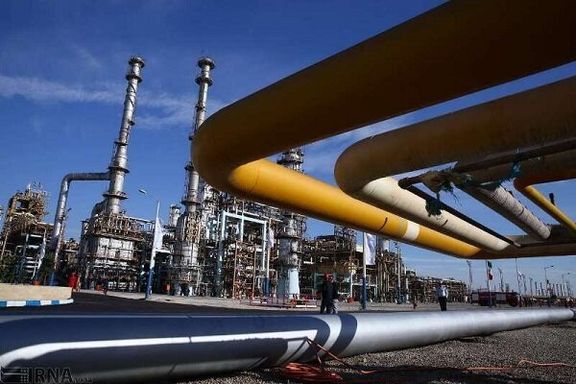
An oil refiner from India has started negotiations with the Islamic Republic to resume crude imports as soon as the nuclear deal is finalized.

An oil refiner from India has started negotiations with the Islamic Republic to resume crude imports as soon as the nuclear deal is finalized.
India, which used to be Iran's No. 2 customer, halted oil imports in 2019 after former US President Donald Trump withdrew from the nuclear deal and re-imposed sanctions on Tehran's oil exports.
According to the unnamed source, New Delhi is waiting for more clarity on the nuclear deal, which apparently is close to tangible results.
A new deal can potentially pave the way for more oil supplies on global markets and soften prices about $5-10 a barrel, because Iran can contribute five percent to the world’s crude volume.
Earlier on Thursday, Japanese oil and energy corporation ENEOS announced its readiness to resume oil imports within two to three months of any revival of the 2015 Iran nuclear deal.
Tsutomu Sugimori, chairman of Japan’s largest refiner, said Thursday that ENEOS would not be able to resume Iranian imports immediately as it needed to set up insurance and arrange shipping. He called a two to three-month period a “possibility.”
Also, in preparation for the possible easing of US sanctions, Iran and South Korea, another major Iranian oil customer before 2018-19, opened detailed talks on freeing Tehran's money frozen by Korean banks fearful of punitive US measures.
as/ms
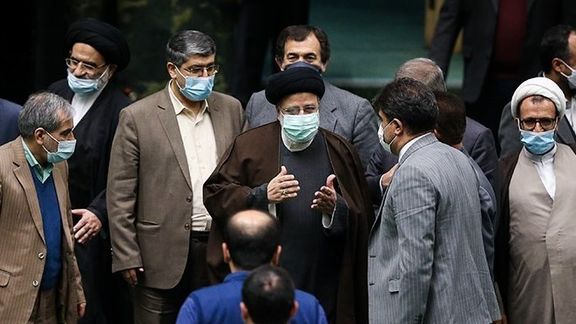
Parliament has dealt a blow to the Iranian government’s plan to balance the budget by refusing to ditch indirect food subsidies, fearing a public backlash.
The parliament’s move earlier this week has been described as the most serious confrontation so far between the parliament and President Ebrahim Raisi.
According to the news agency of the Iranian parliament, ICANA, Hamid-Reza Hajibabaei, the chairman of the budget committee of the Majles has said that the parliament has stood by the nation by not letting the government to stop providing cheap dollars to importers for essential commodities such as wheat, sugar and meat.
In January, parliament had already indicated its opposition to scrapping the subsidy.
Iran has spent between 8-14 billion dollars a year since 2018 to offer importers the cheap dollars. This has been a tremendous burden on its finances since US sanctions stopped most of its oil export earnings in dollars. The Raisi government wants to end the practice to balance its budget, but lawmakers say this will boost the already high rate of inflation and could cause unrest in the country.
A nuclear agreement with the United States and an end to oil sanctions can boost revenues and enable the government to keep the indirect subsidy.
In its leading frontpage report, reformist daily Sharq wrote that Planning and Budget Organization Chief Massoud Mirkazemi who went to parliament on Monday to justify the elimination of the preferential rate of exchange came out of the Majles at the close of business tired and frustrated.
One of the lawmakers who supported the elimination of the preferential rate in the next year's budget, was Alireza Abbasi, the chairman of the Agricultural Committee of the Majles who believed that doing so, will be in the interest of producers of agricultural goods in Iran. He said there are so many loopholes in regulations and traders use them to benefit from the preferential rates while some 80 percent of agricultural producers can never use the advantage.
According to Sharq, Ali Rezaei, the spokesman for the budget committee explained that the reason for the committee's opposition is that it could lead to social and security problems, meaning that doing away with the preferential rate will lead to an increase in prices that could bring about widespread protests.
He said the Majles has asked the government how it can guarantee that the elimination of the subsidy will not lead to social problems and make life difficult for the people, and the government answered: "Inshallah, God Willing, there will be no problem!" Rezaei added that Majles remains concerned about the problem and its impact on low-income people.
Budget Committee Chairman Hajbabaei on Wednesday described the decision as a determining one. "This is the country's most important problem, and many Iranians are concerned about it." He added that "the committee has approved allocating$9 billion dollars in the budget for next year. MirKazemi has said earlier that in the current year there was $8 billion dollars in the budget for purchasing essential commodities, but that amount finished well before the end of the year.
Meanwhile, figures released in September showed prices for essential commodities rose 150 percent, which means doing away with the preferential dollar rate could lead to more price increases.
Sharq has described the difference between the parliament and the government as the first dispute between President Raisi and Majles Speaker Mohammad Bagher Ghalibaf and similar to past instances, Supreme Leader Ali Khamenei will have to intervene to end the dispute. There is still time before the final vote at the Majles on the budget. In the meantime, by leaning to either side, Khamenei will reveal his favorite politician between Raisi and Ghalibaf.
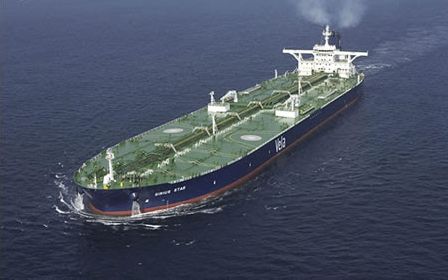
Japanese oil and energy corporation ENEOS has announced its readiness to resume Iranian oil imports within two to three months of any revival of the 2015 Iran nuclear deal.
Tsutomu Sugimori, chairman of Japan’s largest refiner, said Thursday that ENEOS would not be able to resume Iranian imports immediately as it needed to set up insurance and arrange shipping. He called a two to three-month period a “possibility.”
Japan suspended Iran oil imports in 2019, as the expiry of a limited United States sanctions waiver raised the threat of US punitive action against Japan for buying Iranian oil. Sugimori Thursday reflected his company’s interest in Iranian oil, which is suitable for refining and likely to be competitive as global prices rise.
"Once reaching agreement, [Iranian oil] will be a choice for our crude oil procurements, and that's when we start our consideration,” he said. "Without the lifting [of the US threat to penalise the company], there will be no deal [to resume imports] because the current sanctions are weighed heavily…”
Sugimori suggested that the easing of US ‘maximum pressure sanctions’ would bring an extra 2 million barrels of oil a day onto the world market.
Also in preparation for the possible easing of US sanctions, Iran and South Korea, another major Iranian oil customer before 2018-19, opened detailed talks on freeing Tehran's money frozen by Korean banks fearful of punitive US measures.
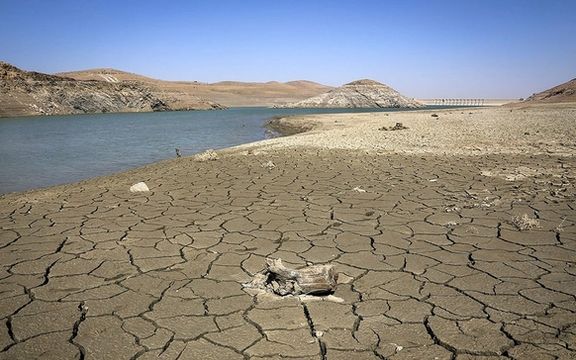
Tehran is set for severe drinking water supply shortages in the coming summer due to low precipitation and evaporation from dams.
Mohsen Mousavi Khansari, board member of NGO aimed at raising awareness of Iran’s water and soil issues, made the projection in an interview with Tasnim news agency Wednesday.
Khansari said that the five dams around Tehran, the main sources of drinking water for the metropolitan region, currently have 300 million cubic meters (m3) of water, which is not enough to avert a water shortage in the summer.
Latyan and Lar dams, which supply water to the eastern parts of Tehran province, have a total 20 million m3 of water that will run out in coming days, he said. Water in Amirkabir Dam, in the west of Tehran, is down two thirds from a year ago to 30 million m3, “which is deeply worrying,” Khansari told Tasnim.
“If we add Mamlu and Taleqan Dams to the other dams, there will be a total of 300 million cubic meters of water, and if we consider the rate of evaporation and decrease in precipitation, we will definitely have many problems in the summer to supply drinking water to Tehran,” Khansari concluded.
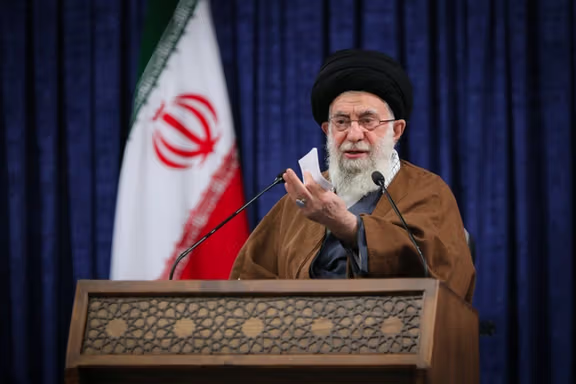
Iran has ranked 170 among 177 countries in economic freedom in the latest annual report by the American think thank the Heritage Foundation.
With an overall score of 42 out of 100, Iran ranked the lowest among 14 Middle Eastern countries included in the survey of the economic freedom report, which is an authoritative comparative source on the subject. The latest report is the 28th annual edition.
Turkey, with a score of 57 is 107th in the world, while Saudi Arabia with 55.5 is 118th. The United Arab Emirates has a high score of 70 and ranks 33rd in the world.
The index measures economic freedom based on 12 quantitative and qualitative factors grouped into four categories: Rule of law, Government size, Regulatory efficiency and Open Markets.
The report says that over the past five years, Iran has experienced just 1.2 percent average annual growth, accompanied by declining economic freedom.
“Sinking under the weight of sharp drops in scores for fiscal health and business freedom, Iran has recorded an 8.1-point overall loss of economic freedom since 2017 and has fallen further in the “Repressed” category,” the report says.
From the 12 indicators in the index, Iran has regressed in 10 of them. Only taxation and government spending “do not weigh heavily on the economy.”
United States sanctions imposed since 2018 have had a serious impact on Iran’s economy, however, many indicators of economic freedom are factors related to domestic governance and the political and economic system of the ruling Islamic Republic.
“Iran’s economy, one of the Middle East’s most advanced before 1979, has been undermined since then by mismanagement, international sanctions, and pervasive graft under a repressive Islamic government dominated by Shiite religious authorities,” the report states, providing examples of peculiarities that undermine the economy.
The corruptive economic role of the Revolutionary Guard, IRGC, is one of the most prominent aspects of the state-managed economy. The ‘rule of law’ general category of factors is significantly impacted by the military’s role and lack of independence for the judiciary.
“Iranians have the legal right to own property and establish private businesses, but powerful institutions such as the Revolutionary Guard limit fair competition and entrepreneurial opportunities. The judicial system is not independent of the supreme leader,” the report summarizes.
In the broad category of ‘regulatory efficiency’ the study shows that, “The bloated state-owned sector and companies controlled by Iranian security forces put private business owners at a disadvantage.”
Iran has regressed in government integrity, fiscal health, business and labor freedom and has historically scored very low (just 5 points out of 100) in investment freedom. This is a particular issue that brings forth a debate about the impact of international sanctions. While it is easy to see that international restrictions can hurt foreign investments, Iran’s political and economic system has generally been inhospitable for all kinds of investments, and this has played a major role in keeping growth at anemic levels for four decades.
The reason for the lack of investment-friendly policies is nepotism, graft, and the military’s large stake in the economy. A more open economic system will lead to more competition, which is incompatible with the vested interests of regime insiders.
The same factors have prevented the country from joining international conventions on financial transparency, anti-money-laundering regulations and a ban on financing terrorism. Since 2017, the regime has refused to adopt legal reforms required by the Financial Action Task Force, an international watchdog. As a result, even if US sanctions are lifted, Iran’s global banking ties will remain severely restricted.
The ruling system, instead of relying more on an open economy and investments, has depended on income from oil exports and the consequent vulnerability to international sanctions.

Iran and South Korea have started working-level consultations on ways to resolve yearslong disputes over Tehran's assets frozen in Seoul under US sanctions.
The South Korean foreign ministry said on Wednesday that Iranian bankers and officials from the state-run oil company and the petroleum ministry have traveled to Seoul to meet with South Korean government and company officials.
During the two-day meetings that started on Tuesday, the two sides discussed detailed payment options and the possibility of resuming oil trade if the US grants sanctions relief.
As the Vienna talks to revive the 2015 nuclear deal seem to be in the final stages, Iran appears to be taking steps for its official return to the international oil market after more than three years.
According to Citigroup, a possible agreement would allow the return of 500,000 barrels a day of oil to international markets in April to May, eventually rising to 1.3 million barrels by year-end.
Iran, which sits on the world's fourth-largest oil reserves, had been a key oil supplier to South Korea, and a main importer of goods such as industrial equipment, household appliances and vehicle parts.
Seoul stopped purchase of Iranian oil since in May 2019 due to sanctions that ban the Islamic republic's oil exports.
Two South Korea banks hold $7-9 billion of Iranian money, owed for oil imports, but the funds are locked under US sanctions, which were reimposed after former President Donald Trump in 2018 withdrew from the deal.